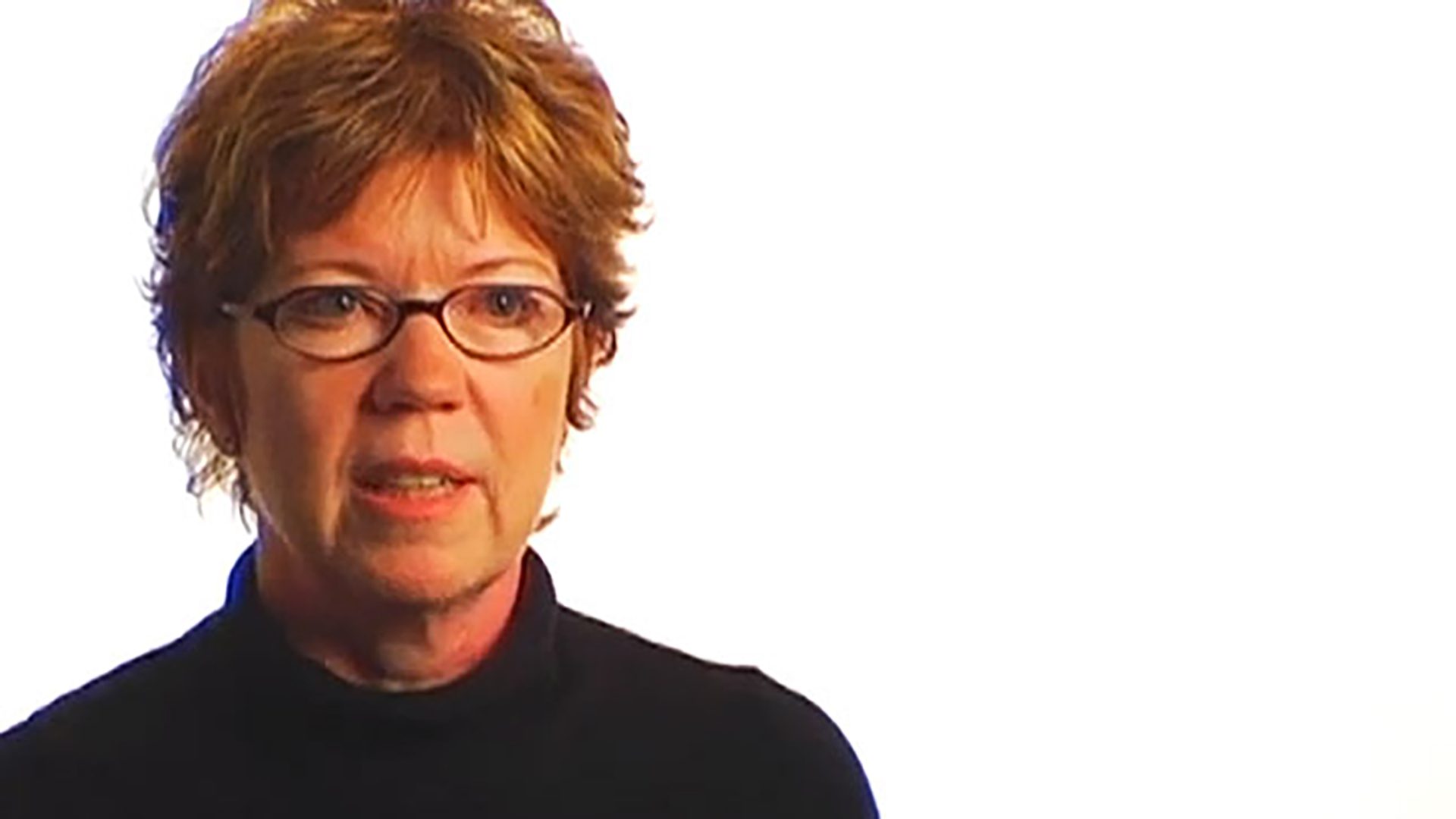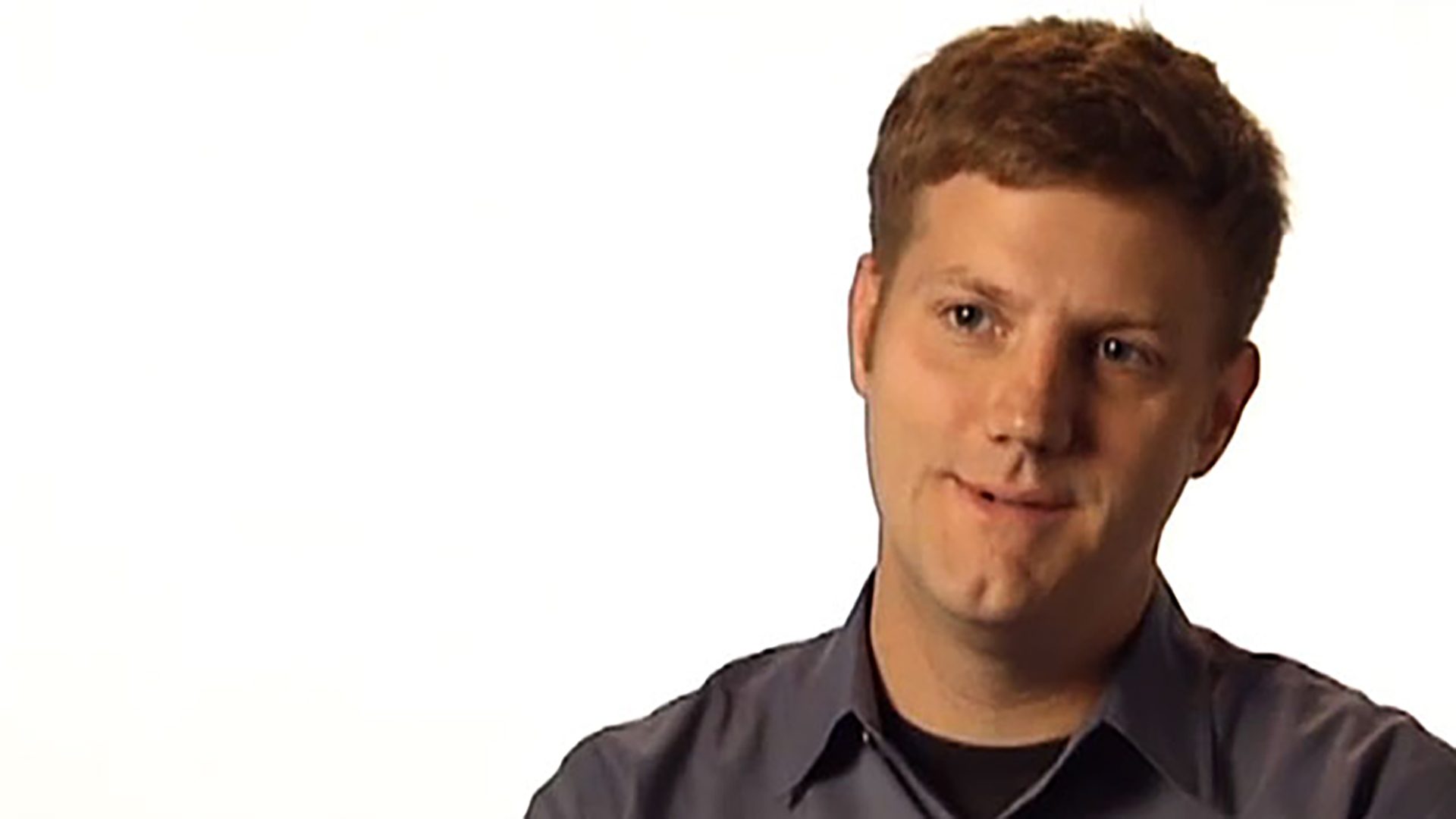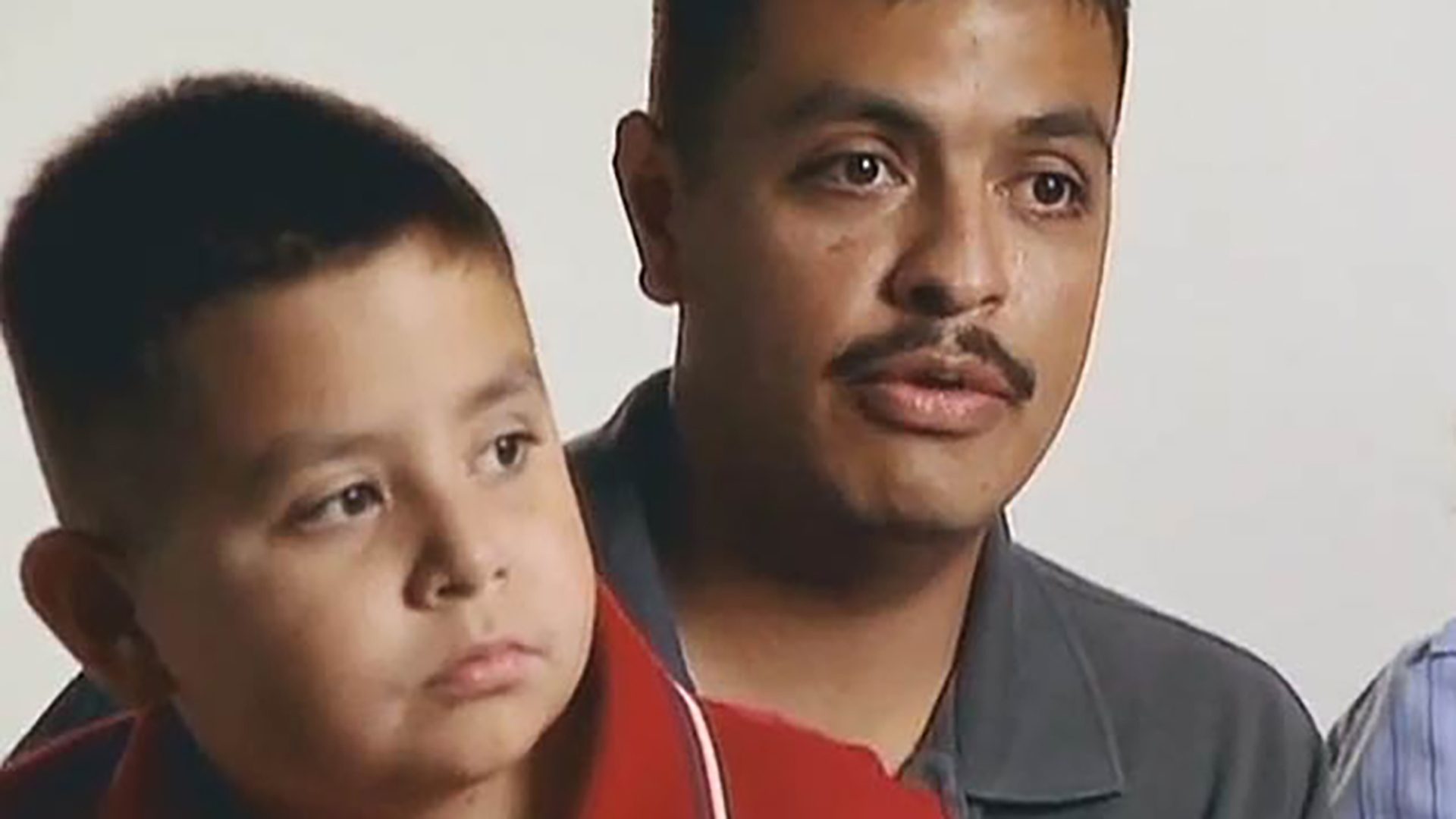Survivor Interview – Teresa G.
Teresa is a thyroid cancer survivor. She discusses her experience with neuroendocrine changes, changing public policy, and meeting other survivors.

I became a thyroid cancer survivor April 2, 2001.
I started having some changes in my voice. Then I developed a nodule on my throat that you could actually feel. I went in to my doctor and she referred me to an endocrinologist. He said that I shouldn’t be worried because the majority of the times it turns out to be nothing but just a benign thyroid condition. Three or four months went by, and my voice was getting weaker, more hoarse, and I was feeling this thing getting huge inside. Eventually, I asked that they do a biopsy. Even at that time, they kept saying, “Don’t worry. It’s going to be fine.”
They took out half of the thyroid. I came back a week later for my routine follow-up visit for them to look at the incision. The surgeon came in, sat down with me and said, “I have to tell you something. I’m so sorry. You have cancer.” A week later, I had a second surgery and they removed the entire thyroid and some lymph nodes. That was a start of a long, long recovery.
I did have other treatment other than surgery. I had a mixed cellular diagnosis. They had varying opinions on what type of treatment or how much radiation I should receive. It’s Iodine-131 that you swallow. So the amount of the dosage was in question. Your thyroid gland regulates everything, so everything is different. All your body systems are affected.
It’s pretty regulated now, but when I think of myself before, I know that I’m different. Once you’ve had thyroid cancer, you have to be over-corrected. So you have to be in a hyperthyroid state, in order to suppress any cancer from coming back. That has its own set of symptoms. You just deal with that from day to day. But for the most part, I feel pretty good right now, which I’m very thankful for.
The thing about having thyroid cancer is that not many people are diagnosed with it. Most of the time, you’re seen not by an oncologist; you’re seen by an endocrinologist. They consult with oncologists and radiation folks about your treatment, but you’re not in that realm of care. You don’t really get all of those services that sometimes other people with cancer get. They don’t even talk to you sometimes like you have cancer. It’s like you’re treated and now you’re done. There’s no discussion about anything afterward or the emotional part of it or the physical part. Most of what I’ve learned about the process of how you feel and get back to feeling normal and what other people have experienced is by seeking out other people who’ve had the same disease and talking to them about their experience, what it’s been like for them, and feeling that I wasn’t crazy. Talking to other people definitely was very helpful.
Always feel like you can ask for what you need. If you feel like there’s information you’re not getting from your doctors, go to other sources. There are lots of organizations out there that have information about different types of cancer, and you can seek it out on your own. If you’re not feeling well and if the medications aren’t right, keep going back until they get them right. It’s the way you feel when you wake up every morning, and it all has a lot to do with those little pills that you take. Tell people that you need more help getting your dose adjusted, so that you can feel better when you wake up every day. You can do the things that you’re used to doing without being reminded that something’s not quite right. I think that’s really important.
I started working with Spirit of Eagles, the American Indian Alaska Native Leadership Initiative on Cancer, about eight months before I was diagnosed. Part of working with the Office of Native Cancer Survivorship has been an opportunity to learn more about survivorship issues in the Native community and what people have gone through, in terms of many of the issues that they deal with.
Spirit of Eagles is a national initiative. It’s really the first national effort to address the cancer burden in tribal communities across the country. It’s an important initiative. Before funding for this program, not much was going on in Indian country about cancer. But in the last five years, cancer has been put on their radar screen. The initiative has been one of the huge efforts to see that we are out there in the communities for people who are interested in knowing how cancer affects their communities, providing information and education about cancer, providing opportunities for individuals who want to get involved from the communities, and with grant monies to work on projects for their own community. It’s really the first effort that’s been community-driven. It’s not what we think we should do for your community about cancer, but it’s talking to you about this issue, and it’s playing out in your community.
There are many challenges that American Indians and Alaska Natives have in dealing with a cancer diagnosis. When they are diagnosed, the biggest challenge in their survival is getting access to good care. The Alaska Natives are definitely under-funded in terms of the amount of funding that is allocated for the amount of care that’s needed. When the dollars are not there, and those are distributed in certain ways, oftentimes the amount of money that it takes to see someone through a cancer diagnosis and treatment is a lot. Then you couple that with the geographic challenges, people that are out in the rural areas, the care’s not available there. They need to come into the urban areas for care. There is only one place in Alaska for them to receive that care. For those individuals who may have a complex cancer that requires treatment that’s beyond what can be provided, they are given a choice of leaving their state and going somewhere else, usually Seattle, for treatment. For those individuals, leaving family, being in a city that’s foreign to them, there are all those separation issues and coping and, “How am I going to make it?” They have to be there for a long time. If you had to leave your family for six months with the diagnosis for treatment, even to come to Anchorage is pretty devastating, especially if you have children that you’re looking after. It’s hard. That’s a huge issue.
That’s why they have the lowest survival rate. Oftentimes, they have a symptom and they don’t come in until their disease is far advanced. A lot of times, those are curable cancers. That’s the saddest thing when you think, if they only came in when they first felt that lump or had that inkling that something was wrong. Even sometimes when they get people in with an early diagnosis, the emotional impact of leaving their family for such a long time for treatment is too much. People just give up getting treatment even though they may have a curable disease and go back to their village because that’s more comforting to them. The access just isn’t there. It’s getting better for many of the primary healthcare issues but for people who need specialty care, it’s really a challenge, especially cancer care.
Survivorship means that everyday I’m able to get up, go out the door, greet the day and do the best that I can, be the best that I can, and be there for somebody else, who may need something, no matter what that is. It’s thinking about the future, not knowing what that’s going to be but it’s having a future. That’s part of survivorship. It’s being there, just being is survivorship, being able to share your story. That’s what it means to me.
I live strong. I want to give other people hope. I want to help them with their journey. I want to do what I can in the arena of survivorship. Twenty years ago, people didn’t really care about what happened to you after you were diagnosed. Now there’s a movement out there. Hopefully, for people who have long term effects from their treatment, they will have someone out there working on those issues for them, whether it’s at the policy level or at the program level, someone developing some support resources. It’s not enough to be able to save their lives with these very strong chemicals and radiation, and then not help them through dealing with the long-term impact of that.
My name is Teresa Guthrie, and I’m a four-year thyroid cancer survivor.

